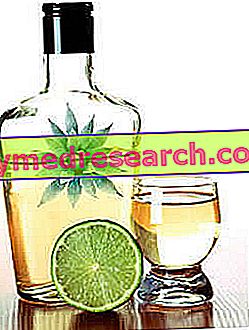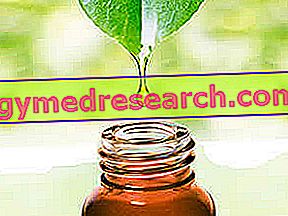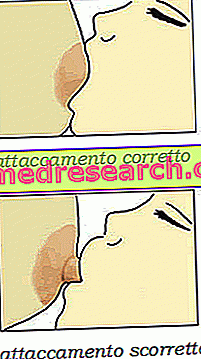
What is Kogenate Bayer?
Kogenate Bayer consists of a powder and a solvent to be mixed together to obtain a solution for injection. Kogenate Bayer contains the active substance octocog alfa (recombinant coagulation factor VIII).
What is Kogenate Bayer used for?
Kogenate Bayer is used for the treatment and prevention of bleeding in patients with haemophilia A (an inherited bleeding disorder caused by a factor VIII deficiency). Kogenate Bayer is intended for short-term or long-term use.
The medicine can only be obtained with a prescription.
How is Kogenate Bayer used?
Treatment with Kogenate Bayer should be started under the supervision of a doctor experienced in treating haemophilia. Kogenate Bayer is administered by intravenous injection (into the vein) which lasts several minutes, at a maximum speed of 2 ml per minute. The dose and frequency of injection vary depending on whether Kogenate Bayer is used to treat the bleeding or to prevent it during surgery. The dose should also be adjusted depending on the severity and location of the bleeding or the type of surgery. Kogenate Bayer can also be administered as a continuous infusion (drip into a vein) for at least seven days in patients undergoing major surgery. All information on how to calculate the doses can be found in the package leaflet.
How does Kogenate Bayer work?
The active substance in Kogenate Bayer, octocog alfa, is a protein that affects blood clotting. In the body, factor VIII is one of the substances (factors) involved in blood coagulation. Haemophilia A is characterized by the lack of factor VIII, which causes blood clotting problems, such as bleeding in joints, muscles or internal organs. Kogenate Bayer, used to replace the missing factor VIII, makes it possible to remedy the deficiency and temporarily control bleeding disorders.
Octocog alfa is not extracted from human plasma, but is produced by a method known as "recombinant DNA technology": that is, it is obtained from a cell in which a gene (DNA) has been introduced which makes it capable of producing factor VIII of human coagulation.
What studies have been performed on Kogenate Bayer?
Kogenate Bayer is similar to another medicine previously authorized in the European Union (EU) called Kogenate, but is prepared differently to prevent human proteins in the medicine. For this reason Kogenate Bayer has been compared with Kogenate to verify that the two drugs are equivalent.
Kogenate Bayer administered by intravenous injection has been studied in 66 patients previously treated with recombinant coagulation factor VIII and in 61 children who had not been treated previously. The main indicator of effectiveness in studies was the number of treatments needed to stop each case of new bleeding.
Kogenate Bayer has also been studied as a continuous infusion in 15 patients with haemophilia A undergoing major surgery. The main indicator of effectiveness was the doctor's judgment on the ability to stop the bleeding.
What benefit has Kogenate Bayer shown during the studies?
Overall, in 95% of previously treated patients, bleeding stopped after one or two intravenous injections of Kogenate Bayer. In previously untreated patients, bleeding has stopped after one or two intravenous injections in about 90% of cases. In cases of administration as a continuous infusion, arrest of bleeding was judged "excellent" in all 15 patients.
What is the risk associated with Kogenate Bayer?
Patients with haemophilia A may develop antibodies (inhibitors) against factor VIII. An antibody is a protein produced by the body in response to unknown agents within the body's natural defense system. If antibodies are developed, Kogenate Bayer does not work properly. In studies with Kogenate Bayer, this happened in 14% of previously untreated patients and in 17% of children who had been treated for less than five days in the past. However, it was found in less than 0.2% of patients treated for more than 100 days. The most common side effects of Kogenate Bayer (seen in between 1 and 10 patients in 100) are reactions at the infusion site and hypersensitivity reactions (allergy) of the skin type (itching, rash and irritation). For the full list of all side effects reported with Kogenate Bayer, see the Package Leaflet.
Kogenate Bayer should not be used in people who may be hypersensitive (allergic) to recombinant coagulation factor VIII, mouse or hamster proteins or other ingredients of the medicine.
Why has Kogenate Bayer been approved?
The Committee for Medicinal Products for Human Use (CHMP) decided that Kogenate Bayer's benefits are greater than its risks for the treatment and prophylaxis of bleeding in patients with haemophilia A (congenital factor VIII deficiency) and recommended release of the marketing authorization for the medicinal product.
More information on Kogenate Bayer:
On 4 August 2000, the European Commission issued a marketing authorization for Kogenate Bayer, valid throughout the EU. The marketing authorization was renewed on 4 August 2005. The marketing authorization holder is Bayer Schering Pharma AG.
For the full EPAR of Kogenate Bayer click here.
Last update of this summary: 04-2009.



